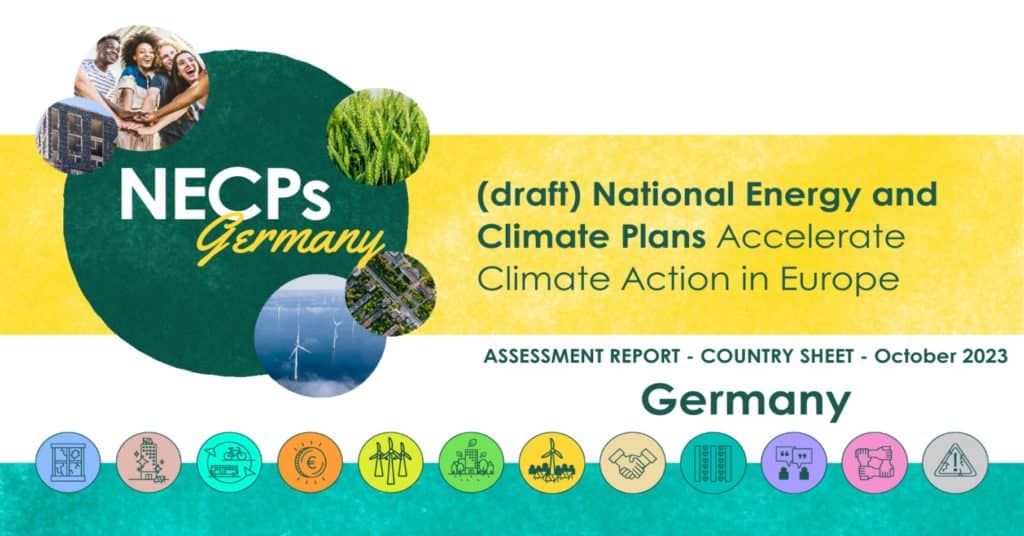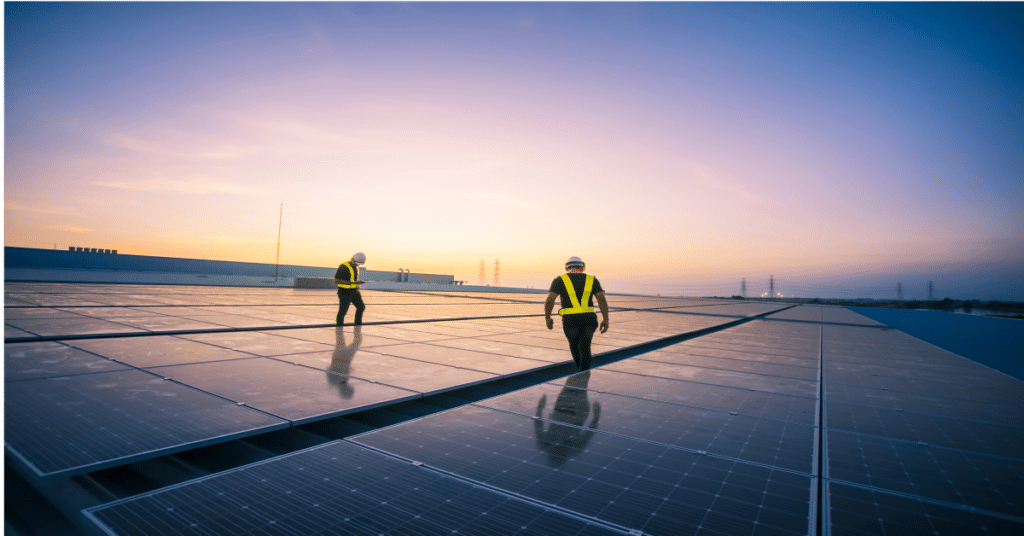German NECP
The final German NECP is more ambitious than the 2023 draft and, except for the LULUCF sector, targets are aligned to the minimum 2030 EU benchmarks on paper. However, the NECP does not contain enough information on how Germany intends to close the gaps in different sectors. Overall, the federal government is overly relying on price developments under the upcoming ETS II to close the ESR and energy efficiency target gaps, which poses questions regarding the social and political feasibility of the trajectories presented in the NECP. In addition, too little information is included on the financial needs and sources to achieve the planned trajectories.
Click here to download the country page from our latest report – “Mind the NECP Gap”
Germany – climate action progress in figures
Check German implementation of its National Energy and Climate Plan
For climate, the final NECP reports an ESR contribution compliant with the EU benchmark on paper, but according to projections Germany is expected to fall short on meeting several climate targets, especially in the ESR and LULUCF sectors. The reported targets are mostly not backed up by credible trajectories supporting their achievement. Even in projections following the WAM scenario – which is not sufficiently described – Germany is not on track to achieve most of the EU climate and energy targets.
Enquanto a Alemanha deve acelerar a ação climática para atingir seus novos alvos 2030, estava, a partir de 2022, aproximadamente na pista com as trajetórias de redução de emissão de gases de efeito estufa projetadas no NECP de 2019. A única exceção notável e preocupante é o setor de Lulucf. Além disso, está aproximadamente na trajetória para cumprir as metas de energia tanto quanto à eficiência energética e renováveis. Os esforços devem aumentar acentuadamente se os novos alvos de 2024 NECP serão atendidos. Co-benefícios socioeconômicos
Check here our latest briefing from October 2024
“Mind the NECP Gap”
acelerar
O plano climático nacional e energético alemão precisa fornecer medidas para atingir as metas climáticas para 2030 e o objetivo de uma economia neutra climática até 2045. Nesta fase, é muito importante promover a participação pública na redação do plano e acelerar a transição para o setor de transporte. NewsLetter



